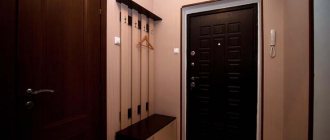Undoubtedly, living in an apartment building is convenient in terms of comfort, infrastructure, availability of utilities and layout. The main disadvantage is the presence of neighbors who are located above, below and on all sides, depending on the floor and location of the apartment. Thin partitions do not provide protection from excess noise, so the echo of loud music, screams and, of course, the sounds of repair work penetrate into your private space. In such a situation, do not rush to make trouble with your neighbors. Find out how long you can drill in an apartment, and how to protect your interests in case of violation of legal requirements. If you are the source of the noise, take measures to avoid problems with your neighbors. But more about everything.
IS APARTMENT RENOVATION INCLUDED IN THE LIST OF FORBIDDEN NOISE?
Frequent complaints and appeals forced representatives of the State Duma to adopt Federal Law No. 52 in 1999, regulating the requirements for maintaining silence on weekdays, holidays and weekends.
The law specifies the following sources of noise:
- tape recorder or other sound reproduction devices;
- singing and playing instruments;
- whining, shouting and swearing;
- construction and repair work;
- loading and unloading, movement of furniture;
- car alarm;
- use of pyrotechnics;
- barking or howling of animals.
This list also includes other sound sources that disturb the peace of citizens.
There is such a thing as “lawful noise,” for which no punishment is imposed. This group includes:
- Sounds from actions aimed at preventing a crime (for example, the operation of an alarm during an attempted theft).
- Activities related to emergency prevention (fire, flood, etc.).
- Compliance with safety requirements that must be met.
- Noises made by religious official organizations during events.
- Exceeding the established sound level standards with permission from local authorities.
- Violation of the Criminal Code of the Russian Federation (considered under other articles).
In other cases, persons who disturb the peace of people in the evenings and on weekends are punished from the age of 16 years or more. This applies to individuals and officials, as well as companies.
How to prevent conflict?
When you start a renovation, it makes sense to get the consent of your neighbors to carry out the work. It will also help you better plan how construction will proceed. For example, if your neighbors’ child sleeps from 11:00 to 12:30, you should not aggravate the situation, but schedule less noisy work during this time: gluing wallpaper or taking out construction waste.
If you treat your neighbors' problems with understanding, the risk that they will write a complaint against you, even if you sometimes make noise after the time specified by law, will be minimal.
In addition, do not block the passages with construction debris. Please note that it is prohibited to remove construction waste from the apartment without special packaging, as well as to use the passenger elevator to remove waste.
What remains after construction is packed in special bags and transported by freight elevator. Treat your neighbors with respect and you can count on complete mutual understanding.
IS IT POSSIBLE TO DRILL IN AN APARTMENT - POSITION OF THE LAW
In Russia there is only one law that protects the sanitary and epidemiological well-being of citizens. Federal Law No. 52 contains only general instructions that allow regulating the time of silence in places. For this reason, in each region of Russia, rules regarding the timing of repairs and other sources of noise differ. Local laws specify the exact times when drilling and making noise can and cannot be done. Protection includes the night period, weekends and holidays, and in some regions - the period from 13.00 to 15.00 (quiet hour).
Current standards regulate noise levels not only in multi-apartment buildings, but also in local areas, local transport, hotels, restaurants, sanatoriums and other places. Residents of private houses are also subject to a noise ban during certain periods. When a violation is detected, it is not the source of extraneous sound itself that is assessed, but the fact that noise appears above the permissible norm.
According to the mentioned law, repairs can be carried out within the time established by law. By the way, the noise level should be as follows:
- during the day - up to 40 dB;
- at night - up to 30 dB.
Interestingly, drilling and other construction work emit noise of 140 dB and above, and the same vacuum cleaner has a sound level of about 75-80 dB.
As noted, sometimes exceeding current requirements is acceptable. This also applies to national holidays, for example, May 9 or New Year. On days of such events you can make noise until 00.00 or 03.00, respectively.
Acceptable noise level
Due to the fact that the concept of “loud sound” is figurative, the legislator has provided for a more specific expression of noise. The unit of sound measurement is the decibel.
The official text of the document provides for the following norms:
- during the day – from 40 to 55 dB;
- during the night – from 30 to 45 dB.
To understand the noise level at a household level, compare it with a car alarm. Its level is 80 dB.
Moscow region
More stringent standards for drilling in an apartment and other noise sources apply in the Moscow Region. During the period from Mon to Fri, silence must be observed from 21.00 to 08.00. If we are talking about a weekend or holiday, the restriction starts from 22.00 and ends at 10 am. Additionally, time is allocated from 13.00 to 15.00 for “quiet hour”. The law also provides an answer to how long you can drill in an apartment. If it is a weekday, work can begin at 9.00 am and continue until 19.00. On weekends - from 10.00 to 19.00. The last requirement does not apply to multi-apartment properties that were built less than six months ago.
Fines under the Code of Administrative Offenses
Liability is provided for by the Moscow Code of Administrative Offenses (Article 3.13):
- if the violator is a citizen, he is due a fine in the amount of 1 to 2 thousand rubles;
- if the violators are officials, sanctions range from 4 to 8 thousand rubles;
- The most significant fines are determined for legal entities. Violation of the law will entail the imposition of sanctions in the amount of 40 to 80 thousand rubles.
The adoption of such strict measures is dictated by the need to ensure peace and quiet for citizens.
Silence laws
In addition to the regional law discussed above, there are also federal regulations that protect the peace and quiet of citizens:
- Federal Law “On the sanitary and epidemiological welfare of the population” dated March 30, 1999 N 52-FZ. It establishes the obligation of residents to maintain their living quarters in accordance with approved sanitary standards;
- SanPiN 2.1.2.2645-10 “Sanitary and epidemiological requirements for living conditions in residential buildings and premises” dated June 10, 2010 N 64 (Appendix 3). Sets the maximum permissible noise level in residential premises.
Repair and drilling in the apartment
Law on silence in Moscow - you can download the official text here or on the official website.
Other cities
In other cities of the Russian Federation, the requirements regarding noise time are identical. Deviation is possible for one to two hours. For example, in Primorye and Voronezh loud sounds are prohibited from 22.00 to 07.00 in the morning, in Adygea, Chuvashia, Tomsk and Krasnodar - from 23.00 to 07.00, in Penza and Arkhangelsk - from 22.00 to 06.00. The most loyal to “violators” is the Republic of Mordovia, where the restriction applies to the period from 23.00 to 6 am. The longest “quiet hour” in the Krasnoyarsk region (from 22.00 to 09.00).
Individual requirements are established for each city and region of Russia, so the current rules need to be clarified individually.
How to calm down a neighbor builder?
Unfortunately, not all neighbors take into account the interests of the people living in the neighboring apartment. If in the next apartment there lives such a would-be builder who knocks down walls without thinking about time, then you will have to take radical measures.
Try to come to an amicable agreement. Explain at what time repair work can begin and how much noise is allowed in the apartment. Act calmly and reasonably, guided by the above provisions.
If persuasion doesn't work, try scaring your neighbor. Ask if the builder has permission to carry out renovation work. Usually noisy work is associated with the redevelopment of the premises, and this procedure requires mandatory approval from the BTI. If there is no permission for redevelopment, the tenant faces a fine.
If it is not the tenant who is making noise, but a construction company that is doing the repairs, do not hesitate to ask what kind of work the workers are allowed to carry out. Usually this information is specified in the charter of the enterprise. Violations may result in the loss of the company's license to carry out repair work. By the way, ask about the availability of a license. Often, workers' lack of documents is the most effective lever of pressure.
Start collecting evidence. To record an excess of the permissible decibel level, call the Sanitary and Epidemiological Station and Rospotrebnadzor. These organizations will take the necessary measurements, and a corresponding protocol will be issued.
Call the local police officer. A law enforcement officer is obliged to record every fact of an offense. It is recommended to keep copies of the protocols with you.
The next authority you can turn to is the court. The statement of claim must state the essence of the problem and attach the collected evidence. Usually in such situations, Themis takes the side of the plaintiff.
WHAT TIMES CAN YOU DRILL IN APARTMENTS (TABLE)
For convenience, we will summarize the information from how many hours you can drill in apartments into a table (for some cities).
| City, region | Time | Exception |
| Moscow | from 09.00 to 19.00 | from 13.00 to 15.00, except for multi-storey buildings that were put into operation up to 1.5 years ago. |
| MO | from 09.00 to 19.00 on weekdays, 10.00 to 22.00 on weekends and holidays. | Only for houses that were built 6 months ago or earlier. |
| St. Petersburg | 12.00 – 22.00 | |
| LO | 10.00 – 22.00 | |
| Nizhny Novgorod | 10.00 – 23.00 | |
| Sverdlovsk and region | 11.00 – 18.00 | |
| Novosibirsk and region | 11.00 – 18.00 | |
| Ekaterinburg and region | 11.00 – 18.00 | |
| Altai region | 09.00 – 20.00 | 13.00 – 15.00 |
To avoid problems with neighbors, before planning a renovation, you need to remember the restrictions and plan drilling activities. It is best to carry out work from Mon-Fri until 18.00, and not to do repairs at all on weekends and holidays. If elderly people live nearby, you can discuss the situation with them and warn them about future noise.
Peaceful settlement
The first way would be to have a peaceful conversation with the offenders. It is often possible to agree with neighbors on the period of work to be carried out without involving specialized authorities.
If the conversation does not reach a result, it is necessary to begin a pre-trial procedure for resolving the issue. At this stage, it is necessary to involve Rospotrebnadzor.
The main function of this organization is to protect the rights of citizens. Breaking the silence will be a reason for specialists to visit the house and measure the level with a device. However, the event is paid.
As a result, Rospotrebnadzor will issue a conclusion that the level has been exceeded. The district commissioner will draw up a protocol on the administrative violation.
HOW TO ACT IF YOUR NEIGHBORS BREAK THE LAW
Knowing how long you can drill in an apartment, a person can file a complaint or use other legal methods. First you need to go to the offender and try to resolve the issue peacefully. If convincing requests do not work, you need to call the police (precinct) or file a complaint with Rospotrebnadzor. The document indicates a violation of the law regarding noise levels. Representatives of authorized bodies draw up an act. If the volume is higher than the permissible level, the person will be held accountable (even when working during the daytime). To be on the safe side, it is better to write a collective complaint.
The police usually take strict measures and fine violators. In case of repeated violation, you can end up in the department for 15 days. But this doesn't always happen. Due to the large influx of requests, law enforcement officials often do not waste time issuing a fine, but limit themselves to a warning or do not respond to the request at all.
In this case, you need to take the following steps:
- call the duty station, give your full name, telephone number and address;
- explain the reason for the request and tell us about the violation;
- indicate your intention to file a complaint against neighbors who are drilling in the apartment or making other noise.
After the law enforcement officers arrive, explain the situation to them personally and write a statement. In this case, a fine is imposed on violators. If government officials refuse to respond to a call, you can scare them with the intention of writing a complaint to the Prosecutor's Office. As a rule, this is enough for law enforcement to take action.
In the fight against noisy neighbors, it is better not to cross the line, but some extreme sports enthusiasts use the following methods:
- They turn off the switch to the apartment where the intruder is drilling.
- They frighten their neighbors with “consequences,” taking with them several large “helpers.”
- Cover the keyhole with cold welding.
- Fill the landing with cold water (if young people are making noise on it).
To protect against drilling in a neighboring apartment, you can protect yourself by other methods - make noise insulation or buy earplugs. A radical method is to become the source of noise yourself, for example, turn on the music at full volume and leave the apartment.
Drawing up an application
To draw up an application, you can contact a lawyer. A competent specialist will help in the proper preparation of the document.
However, if desired, the initiative group can independently draw up a statement in free form. It includes:
- name of the district police department;
- data of the district commissioner;
- FULL NAME. applicant or initiative group data, including contacts;
- name of the application;
- description of a conflict situation (for example, a neighbor violated an hour of silence);
- indication of the time of violation;
- reference to noise law;
- statement of request.
- date of application and signature of the applicants.
When submitting an application to the district police officer, you must ask for a copy of the document with a mark of acceptance for consideration. In the future, in case of going to court, a full list of statements to the police, management company, housing office, Rospotrebnadzor and other authorities will form the evidence base.
WHAT IS THE PUNISHMENT FOR A VIOLATOR WHO DRILLS IN AN APARTMENT IN VIOLATION OF THE LAW
Many people are in no hurry to go to the police, trying to negotiate with the offender. But the call is usually answered by a repair team that ignores the requirements. In this case, you need to contact the police and demand punishment from the apartment owner. A representative of law enforcement agencies conducts an explanatory conversation, and if there is no result, he is held accountable under the Code of Administrative Offenses (Article 6.3).
It specifies the following penalties:
- citizens - 100-500 rubles;
- persons in office - 0.5-1.0 t.r.;
- IP - 0.5-1.0 t.r. or suspension of work for 3 months;
- LLC - 10-20 tr. or suspension of activities for 3 months.
These are general rules that may vary in different regions of the country. For example, in the capital of the Russian Federation, for violating noise level requirements, a “criminal” faces the following fine:
- individual - 1000-2000 rubles;
- persons in office - 4-8 thousand rubles;
- legal entity - 40-80 tr.
In St. Petersburg, law No. 273 is applied to violators, according to which the following penalties are imposed:
- individual - 500-5000 rubles;
- persons in office - 25-50 thousand rubles;
- legal entity - 50-200 tr.
In all cases, repeated violations and disregard of the law may result in arrest for up to 15 days.
Administrative responsibility
Liability is provided for by the Moscow Code of Administrative Offenses (Article 3.13):
- if the violator is a citizen, he is due a fine in the amount of 1 to 2 thousand rubles;
- if the violators are officials, sanctions range from 4 to 8 thousand rubles;
- The most significant fines are determined for legal entities. Violation of the law will entail the imposition of sanctions in the amount of 40 to 80 thousand rubles.
The adoption of such strict measures is dictated by the need to ensure peace and quiet for citizens.
HOW TO AVOID PUNISHMENT
Many people do not know how long they can drill in apartments, so they are not forced to break the law. Neighbors can be patient if this is a single violation. It's a different matter if repairs are carried out on a regular basis. In this case, you can run into a large fine and even end up in the department for 15 days.
If you are planning a renovation, contact TSC and obtain permission to carry out such work. It will indicate when you can drill in the apartment and when you can’t.
Noise measurements may be required to defend a legal position. This is possible in two ways:
- purchasing a special program for a PC or phone and then checking the decibel level;
- calling a SES worker with a special device.
If a police officer draws up a report, you can express your disagreement. After receiving the decision, the violator has up to 10 days to appeal to a judicial authority.
Calling the police
In accordance with the law, citizens can involve police officers in any case of non-compliance with silence in apartment buildings. In practice, residents of high-rise buildings resort to this measure only when their rights are systematically violated.
The police squad will draw up an administrative protocol. If the violation is repeated, neighbors will receive a fine.
An effective method is a collective statement from the residents of the house. A competent resident or initiative group fills out an application and collects signatures from other residents. The document is handed over to the district police officer at a personal reception.
Measures to deal with noisy neighbors
There are several ways to influence those who make noise at inappropriate times. Depending on a particular situation, you can choose one of the options:
- Contact your neighbors yourself, explain to them that they are wrong, and ask them to stop their actions that violate the law. For the most part, this method works immediately, so subsequent steps are not required.
- Call the police. If the conversation does not help, then law enforcement officials will help resolve the situation.
- If the police squad did not help, then you can contact the local police officer. The apartment will be registered. It will be periodically checked for compliance with the silence law.
- Going to court. This method is applied to persistent offenders who regularly organize parties and dances.
- Collective complaint to the administration. Compiled by dissatisfied residents. The worst option for the offender would be deprivation of his apartment.
Where does the law on protection of silence apply?
This law also defines the conditions for repairs in the following premises:
- holiday homes;
- kindergartens;
- boarding schools;
- hospitals;
- dormitories;
- adjacent areas;
- sanatoriums;
- HoReCa enterprises;
- recreation areas of neighborhoods;
- public places.
There are a number of actions that are equated by law to violations of order:
- loud singing and whistling;
- screams;
- operation of the security alarm, incl. installed on a car;
- operation of devices that reproduce loud sound, both indoors and on kiosks, trays, and vehicles.









